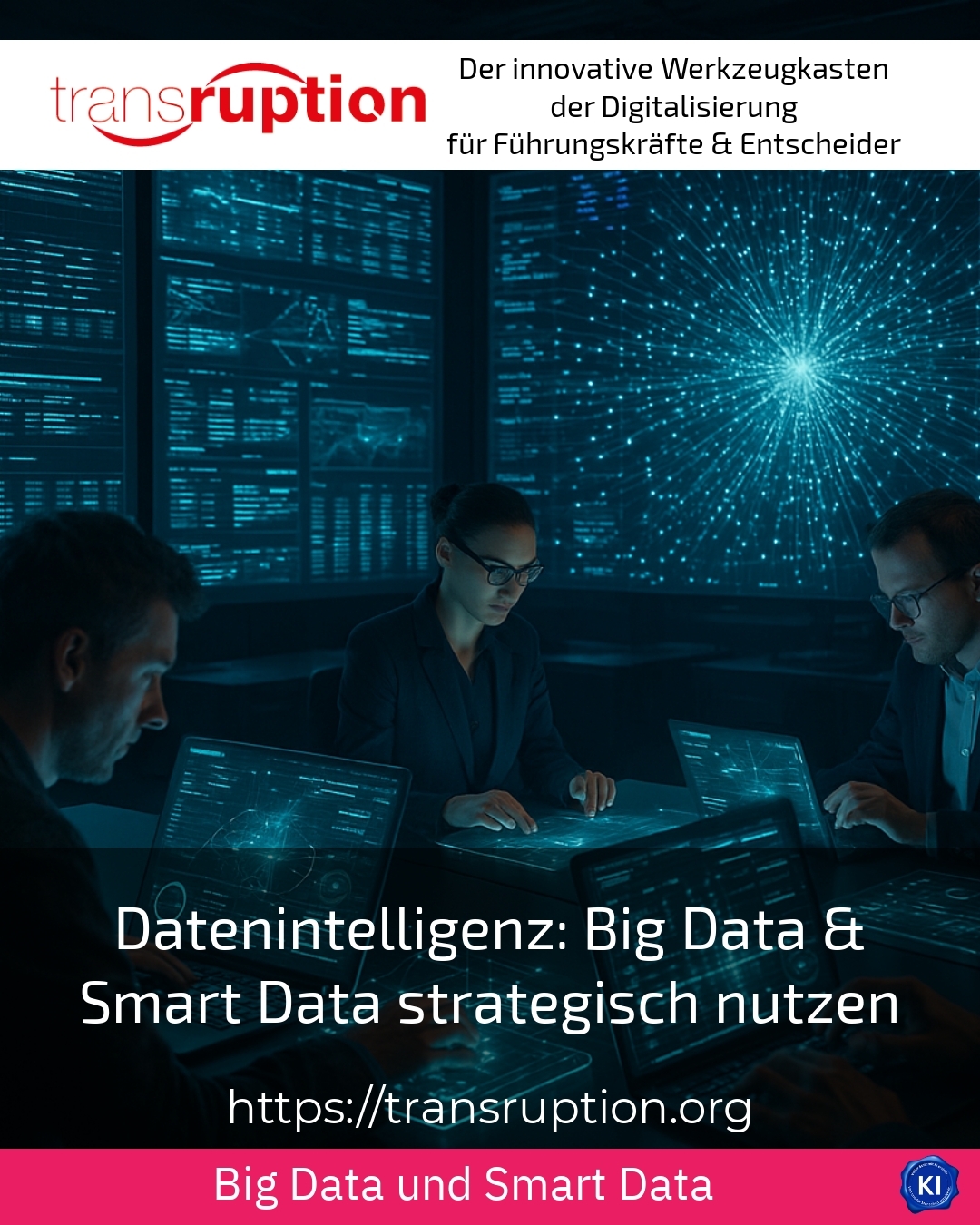Data intelligence: using big data and smart data strategically
In the digital age, the sheer volume of available information presents companies with major challenges. This is precisely where data intelligence comes in: it combines the vast amounts of data, known as big data, with intelligently processed and relevant information, known as smart data. This creates a strategic benefit that enables well-founded decisions and creates competitive advantages.
What does data intelligence mean in the context of big data and smart data?
Big data refers to a collection of large, diverse and often unstructured data volumes that are generated in a wide range of industries - for example, transaction data in the financial sector, sensor data in industry or customer data in retail. The sheer volume of this information is almost impossible to analyse manually.
Data intelligence involves the ability to filter these huge amounts of data in a targeted manner and convert them into meaningful smart data. Smart data is characterised by high quality, relevance and clear contextualisation. This means that not every piece of data is valuable, but those that provide real added value and insights can be sustainably integrated into company processes.
Strategic application of data intelligence in different industries
The variety of application areas for data intelligence is huge. Three examples from different areas illustrate the practical benefits:
In retail, intelligent data analyses help to filter out patterns from millions of customer interactions that indicate the purchasing behaviour of certain target groups. This allows marketing campaigns to be tailored more precisely to needs, resulting in greater customer loyalty and increased sales.
In the automotive industry, data-intelligent processes support predictive maintenance. Sensor values are continuously analysed in order to identify potential faults at an early stage. This makes it easier to plan workshop appointments, avoid breakdowns and increase customer satisfaction.
The healthcare system also benefits massively when patient data, laboratory values and other health information are intelligently linked and interpreted. On this basis, completely individualised therapeutic approaches can be developed that can improve the course of treatment and reduce costs at the same time.
Data intelligence in practice: process optimisation and increased efficiency
Industrial manufacturing demonstrates how data-intelligent action can significantly optimise processes. Real-time monitoring and algorithmic analyses can reduce downtimes and make maintenance work more targeted.
BEST PRACTICE at the customer (name hidden due to NDA contract) The implementation of data intelligence in the production process led to shorter response times in the event of machine breakdowns. The use of intelligent algorithms enabled maintenance schedules to be optimised. The result was a noticeable increase in production efficiency and improved product quality.
A logistics company also used data intelligence to dynamically adapt routes. Analysing traffic data and order requirements enabled the supply chains to be designed flexibly, reducing delivery times and using resources more efficiently.
In retail, intelligent analyses of warehouse and sales data have optimised stock levels. This precise control prevents overstocking, reduces storage costs and improves the availability of products.
Practical tips for the introduction of data intelligence in the company
If you want to use data intelligence successfully, there are several key steps to consider:
- Integrate data from different sources, such as CRM systems, IoT devices or external data providers.
- Improve data quality by identifying and removing incorrect or duplicate data records.
- Use machine learning and statistical methods to recognise patterns and make predictions.
- Visualise results so that decisions can be made quickly and clearly.
- Clearly define data protection and governance rules to ensure security and compliance.
This systematic approach not only creates a solid basis for data-intelligent work, it also supports companies on their way to more efficient processes and better decisions.
Technological requirements and challenges
An important prerequisite for successful data intelligence is technological systems that can record, process and utilise large volumes of data for analysis purposes. These include data lakes, cloud infrastructures and specialised analysis tools. Despite modern technology, the extraction of smart data often still requires human expertise, as the context and quality of the data need to be assessed.
Many companies report that the processing of data can be increasingly automated through the use of artificial intelligence. This leaves more time to incorporate the insights gained into strategic decisions.
My analysis
Data intelligence is a decisive success factor in today's information society. It enables companies to gain relevant, high-quality insights from the wealth of available data. This leads to well-founded decisions that optimise processes and open up new opportunities. The combination of big data and smart data is the key to maximising the benefits. Companies that support this strategic approach and implement it in a targeted manner create sustainable competitive advantages.
Further links from the text above:
What is smart data?
Data intelligence: big data and smart data for decision-makers
Smart data: definition, application and difference to big data
Smart data - definition of terms in the AI glossary
Data intelligence: clever use of big data and smart data
What is smart data? Definition and explanation
How to secure your lead with Big & Smart Data
Big Data / Smart Data
For more information and if you have any questions, please contact Contact us or read more blog posts on the topic TRANSRUPTION here.















